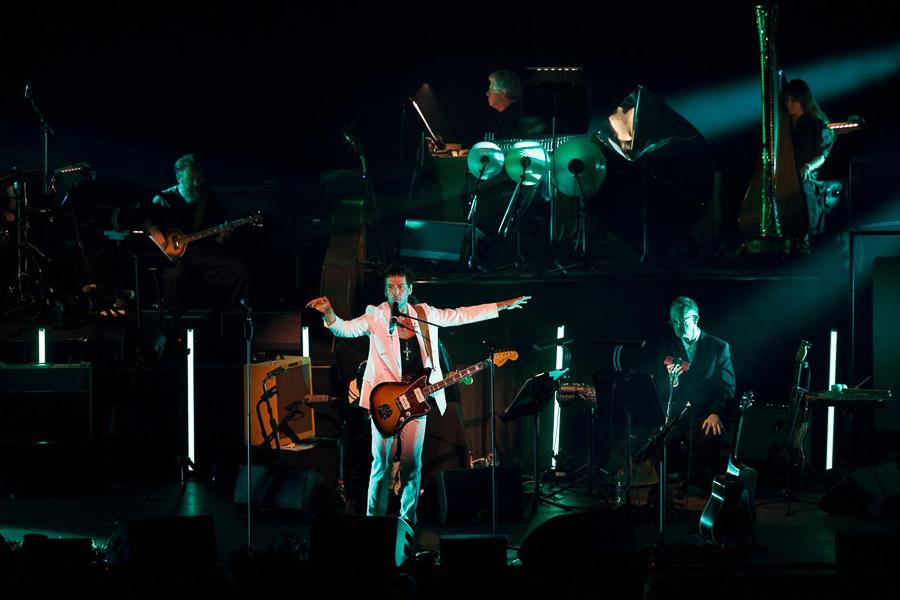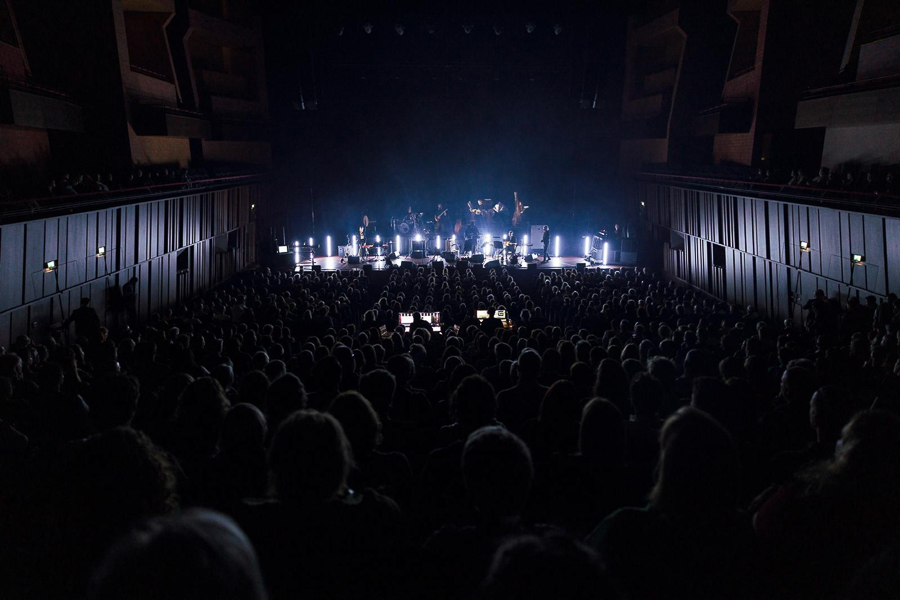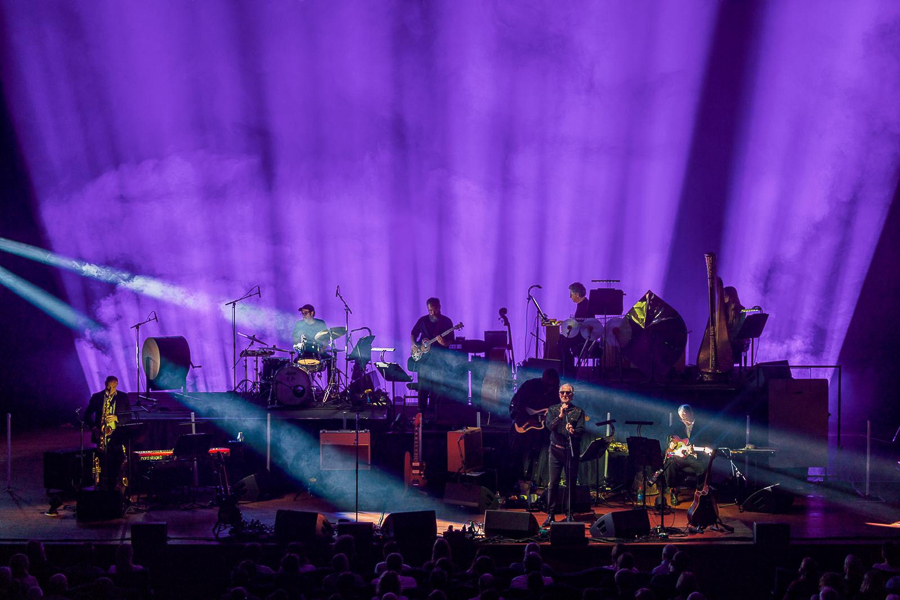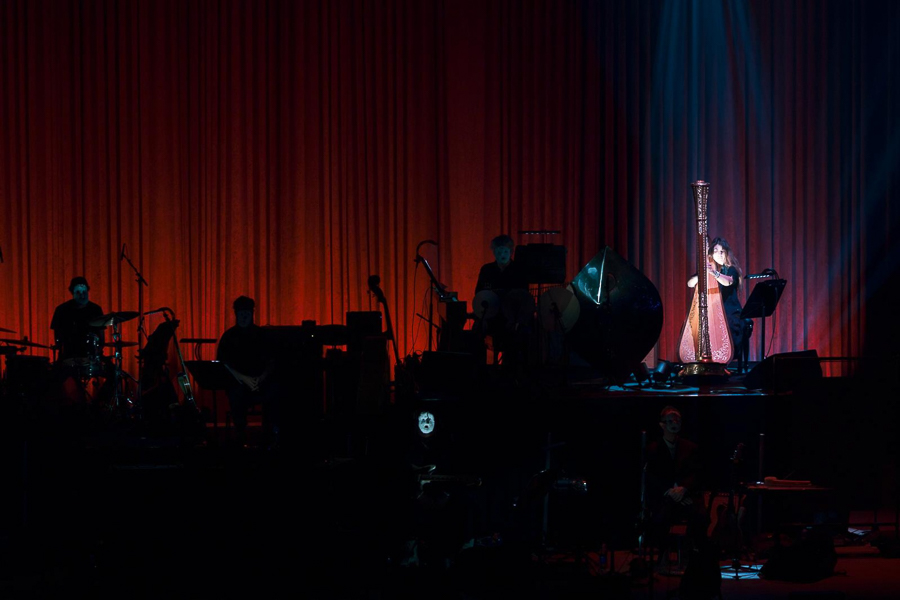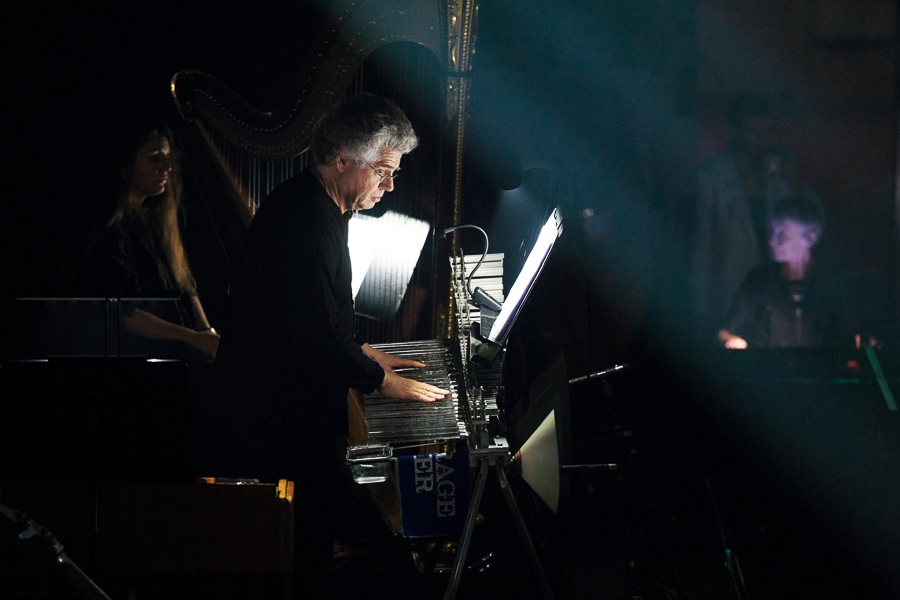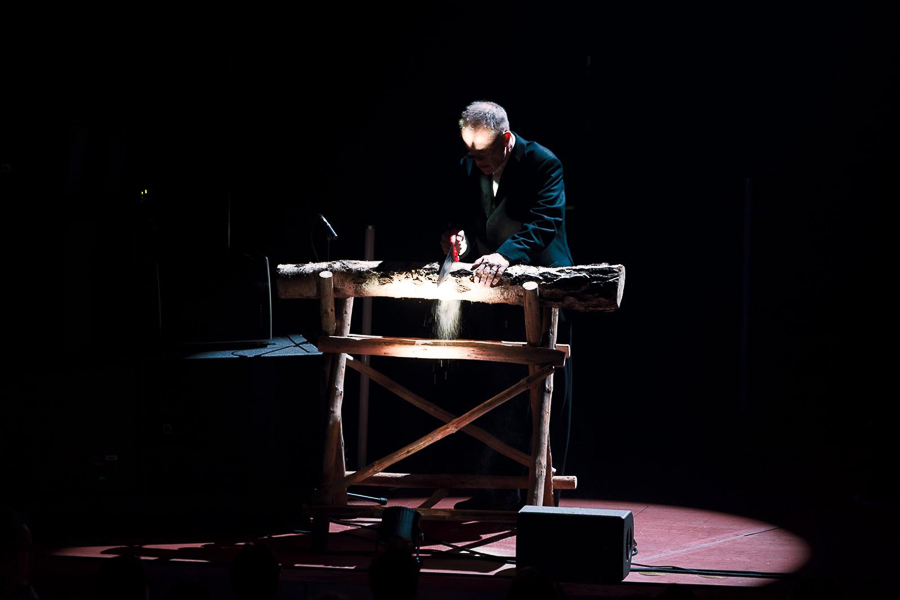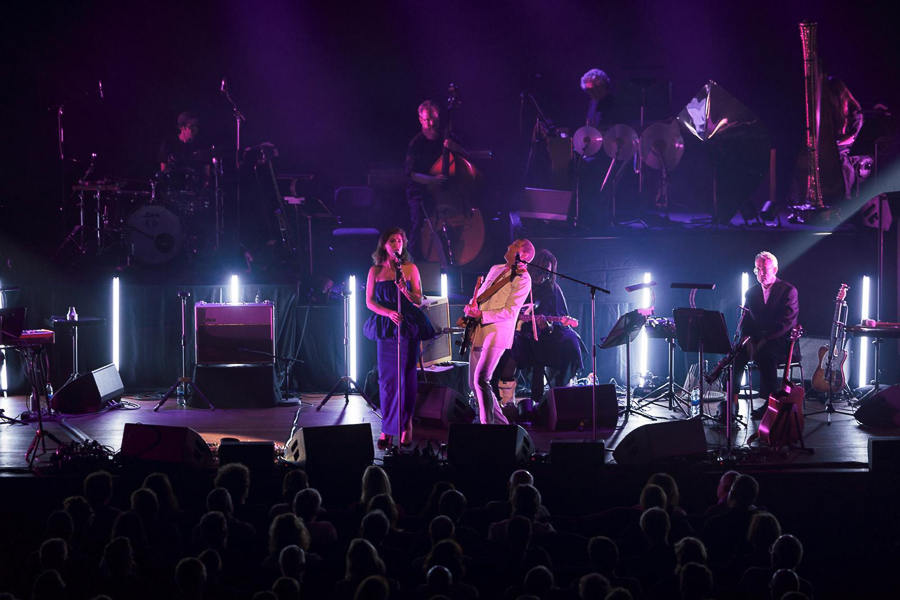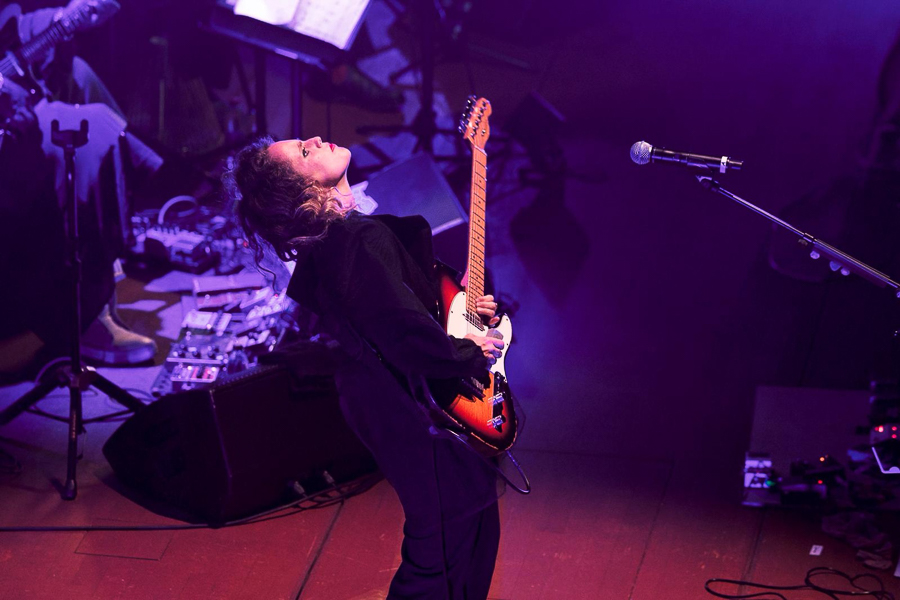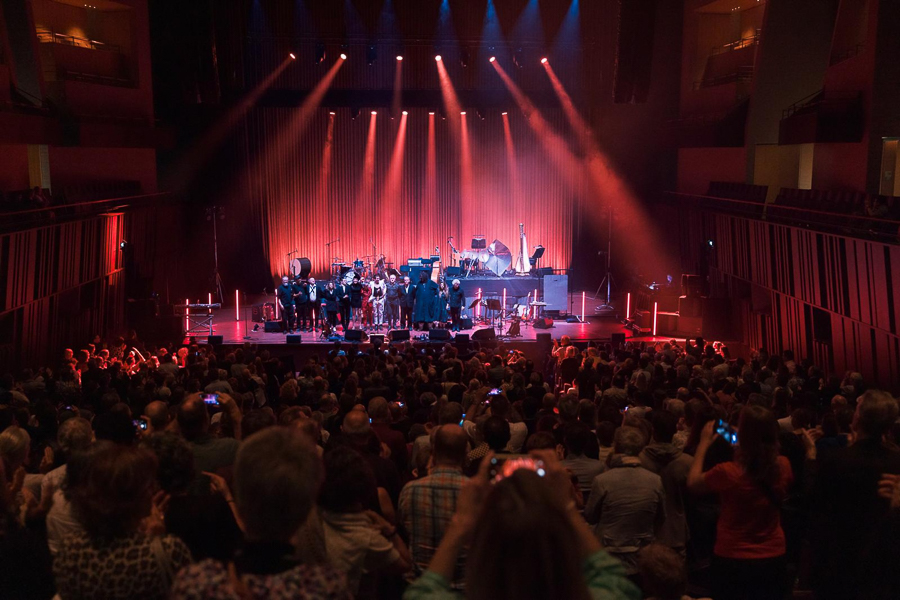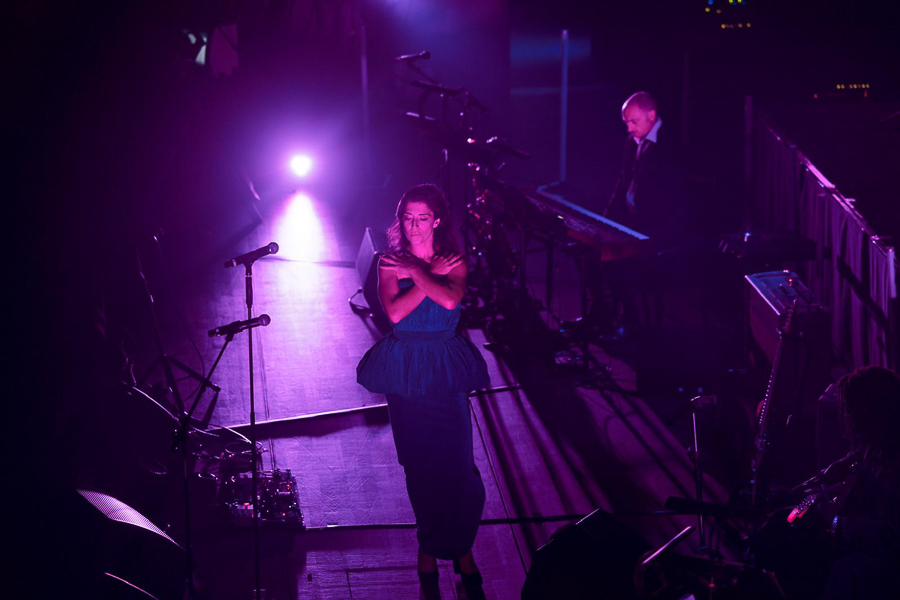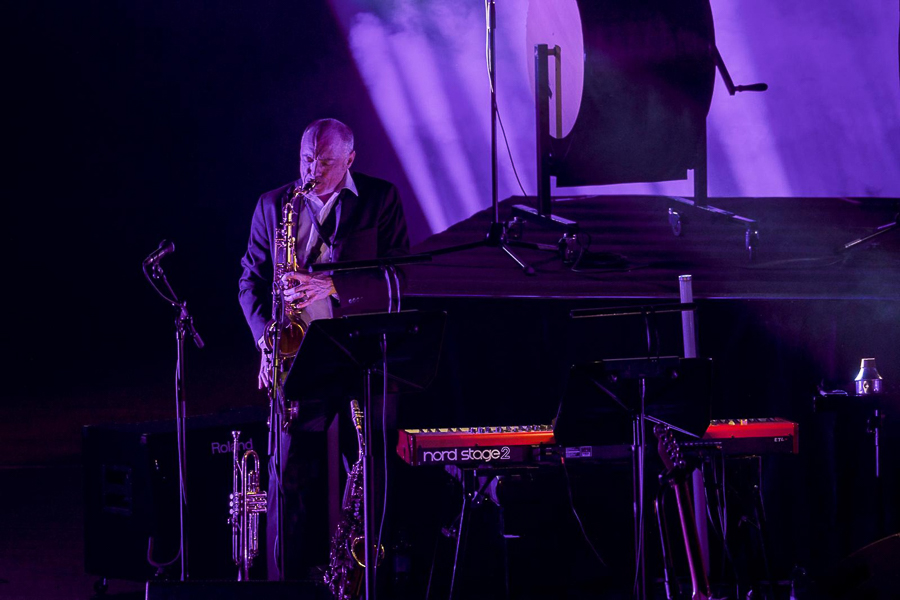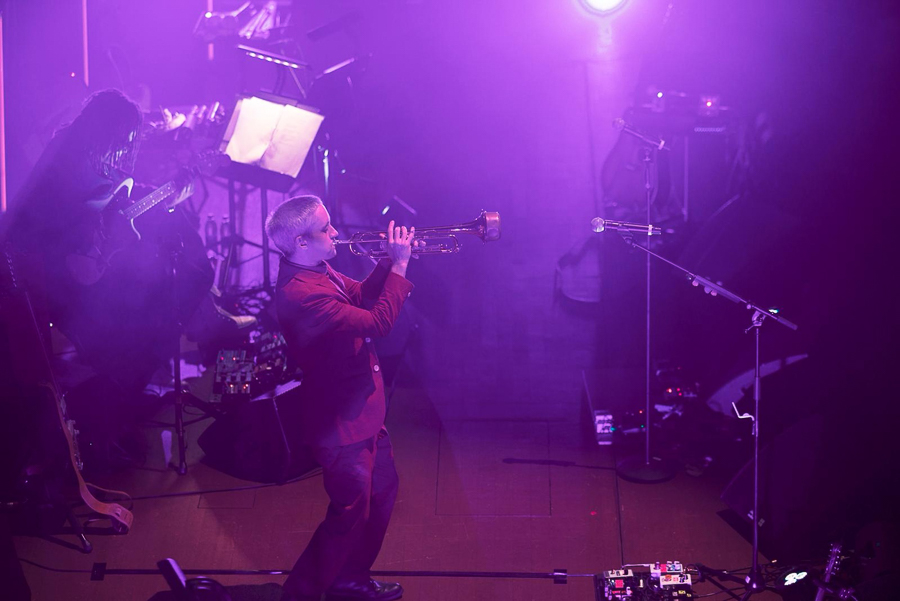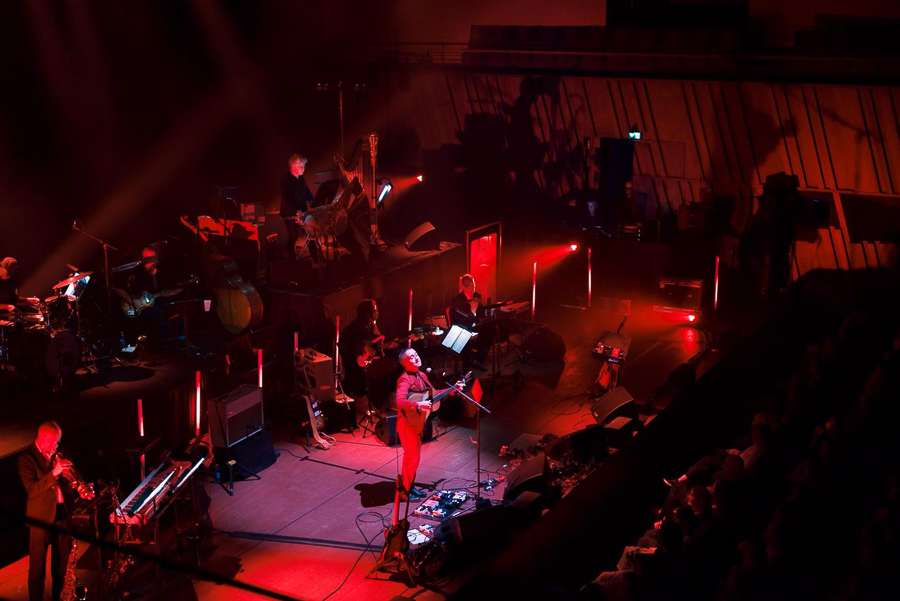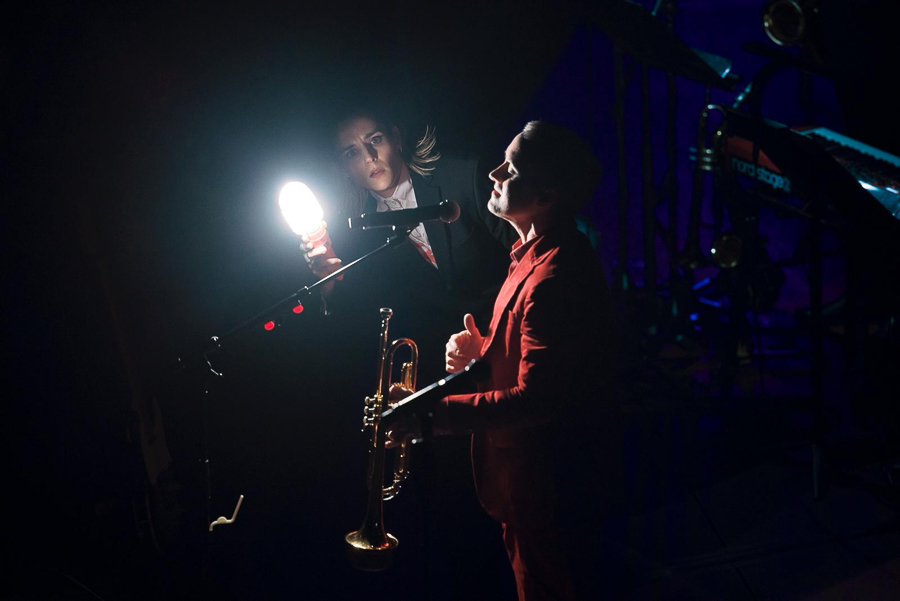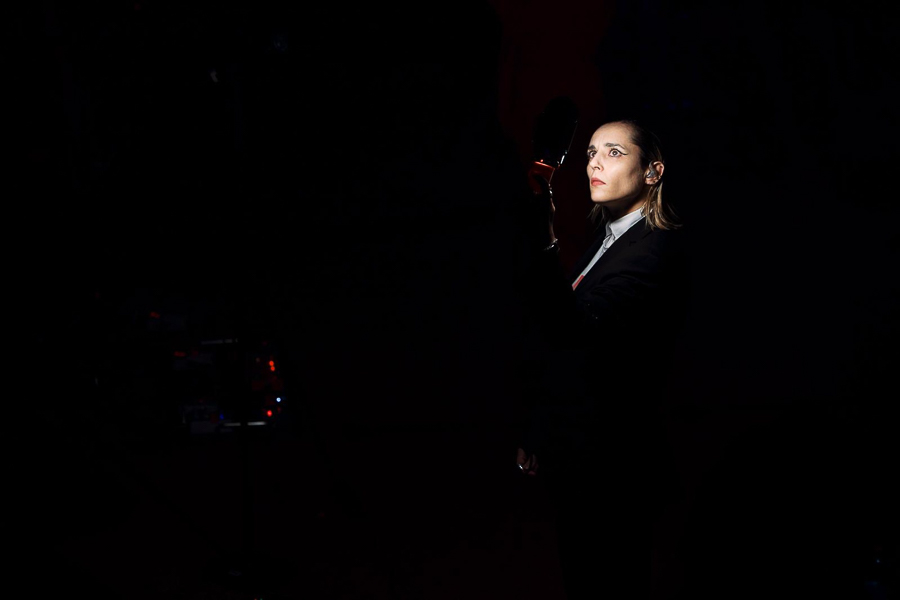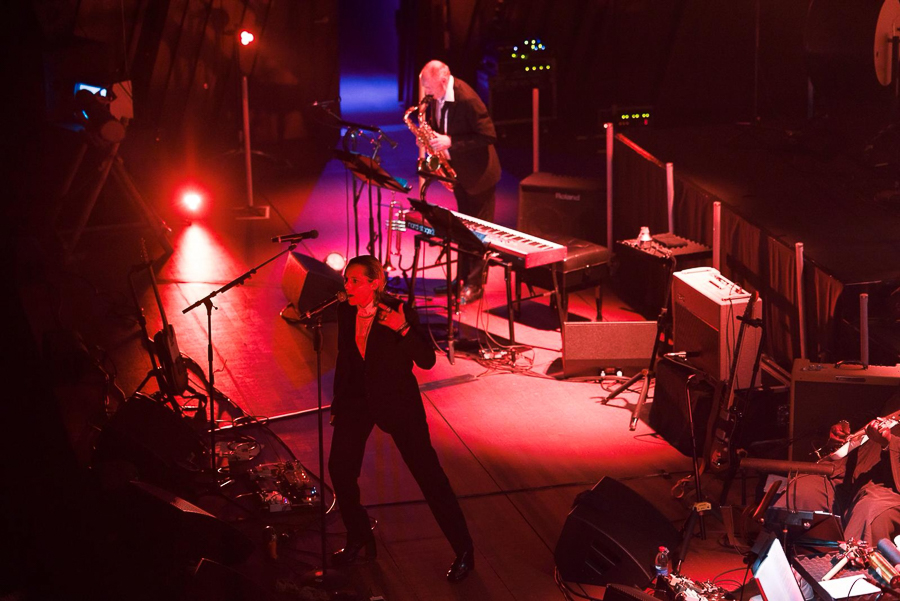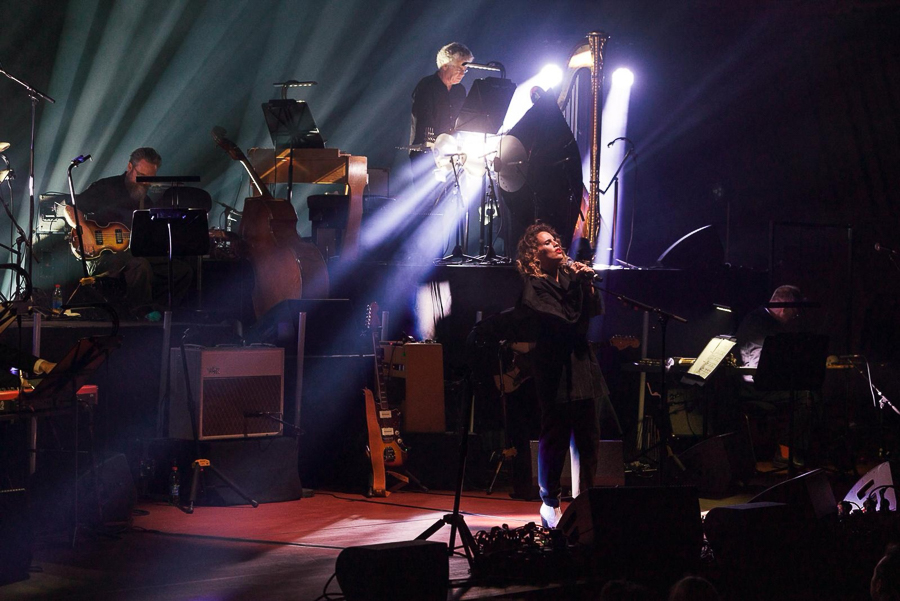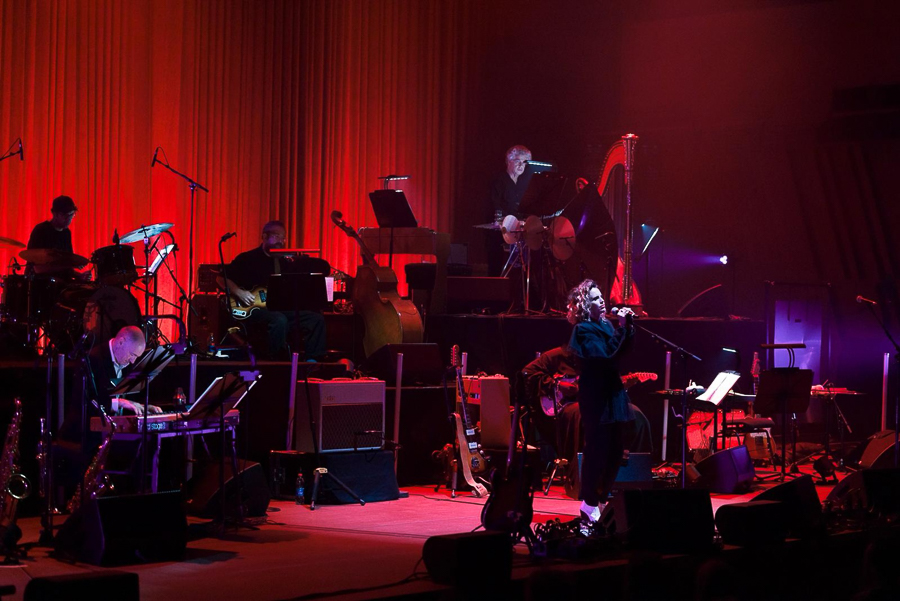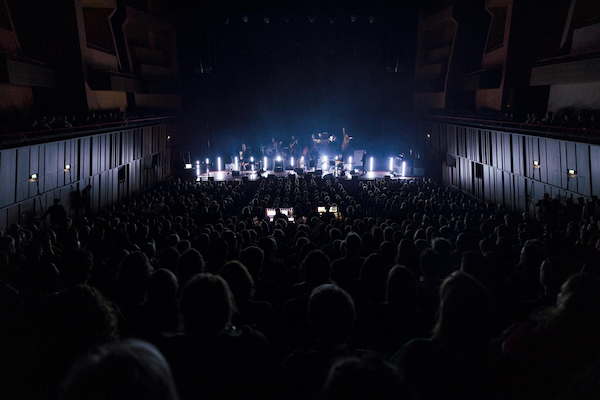 Credit: Philharmonie Luxembourg – Alfonso Salgueiro
Credit: Philharmonie Luxembourg – Alfonso Salgueiro
On Saturday 20 September 2025, Philharmonie Luxembourg hosted “In Dreams: David Lynch Revisited”, a musical retrospective which celebrated the influence of visionary film-maker David Lynch, who died in January 2025.
Best known for films such as Blue Velvet, Mulholland Drive, Eraserhead and his cult television series Twin Peaks, David Lynch was renowned for his surreal, experimental and often unsettling visuals and characterisations. These were often accompanied by musical compositions which ranged from the atmospheric to the industrial.
The “In Dreams” project was conceived by English-born multidisciplinary artist, musician and composer David Coulter, who has worked with esteemed musicians such as the Kronos Quartet, Hal Willner and Laurie Anderson, as well as producing theatrical productions in collaboration with Tom Waits and film-maker Jim Jarmusch.
First performed over ten years ago, “In Dreams” visits many of the best known musical elements of David Lynch’s works and for this iteration was performed by David Coulter’s seven-piece band, accompanied by a raft of guest stars including English singer-songwriter Anna Calvi, Australian musician and singer Mick Harvey, front man of the Irish band Villagers, Conor O'Brien, Australian performer Sophia Brous, lead singer of Savages, Jenny Beth and Australian singer and musician Kirin J. Callinan.
A busy Grand Hall was brought to a black silence as the lights dimmed for the beginning of the performance and David Coulter appeared stage left. In a direct reference to Lynch’s Twin Peaks, he proceeded under a spotlight towards a log at the stage’s edge and began cutting it rhythmically with a saw, building tension in the room. An old tube television flickered to life as he then moved to take his place with the other members of his band.
Sophia Brous then appeared stage right. Her deliberately awkward movements toward centre stage echoed the often surreal physicality of many of David Lynch’s characters. She sang a Spanish a cappella version of Roy Orbison’s Crying, which featured in the film Mulholland Drive, delivering a nuanced performance which grew in power through each verse and chorus, filling the Grand Hall and immediately captivating those in attendance. Without breaking character, she then crept off stage and the stage-level lighting began to flicker as the band came to life to perform Ghost of Love from the film Inland Empire. In another wink towards David Lynch’s influence, vocalist Mick Harvey interpolated lines from the Chris Isaak song Wicked Game into the song. Isaak had appeared as an FBI agent in Lynch’s Twin Peaks prequel Fire Walk With Me.
Next was Anna Calvi who performed the classic Love Letters, which featured on the Blue Velvet soundtrack. It began with dissonant vocal effects stretching her voice in odd directions before transforming into a full-on torch song replete with a cacophonous ending.
The contrasting performances from Conor O’Brien, bedecked in a red suit and shirt and delivering softer and more rounded renditions, served as a mental palette cleanser to the edgier and more manic interpretations by Kirin J. Callinan and Jehnny Beth, who both took on almost Vaudevillian characteristics to deliver threatening, piercing and hypnotic performances.
Callinan’s appearance during Sophia Brous’ version of Blue Velvet was a particular highlight. Disguised like a bank robber with stockings over his head, he sonically cut and thrust through Brous’ performance, generating the precise sort of tension David Lynch was known for creating. Jehnny Beth appeared through the dark of the audience, climbing on stage and taking a hand-held light on a journey past each musician as they played, her deliberate androgynous eeriness again capturing Lynch perfectly. Her rendition of This Mortal Coil’s Song To The Siren being a highlight of the evening.
Amongst the other highlights of the night were harp player Pauline Haas’s delicate version of Angelo Badallementi’s Theme from Twin Peaks, a vibrant rendition of David Bowie’s I’m Deranged from The Lost Highway and Anna Calvi’s closing version of the aforementioned Crying which brought the performance full circle.
This was a brilliantly curated and magnificently performed tribute to one of cinema’s great auteurs which successfully captured the ambience and visuals of David Lynch’s finest work. It fully deserved the standing ovation which it received from everyone who was there to witness it.

